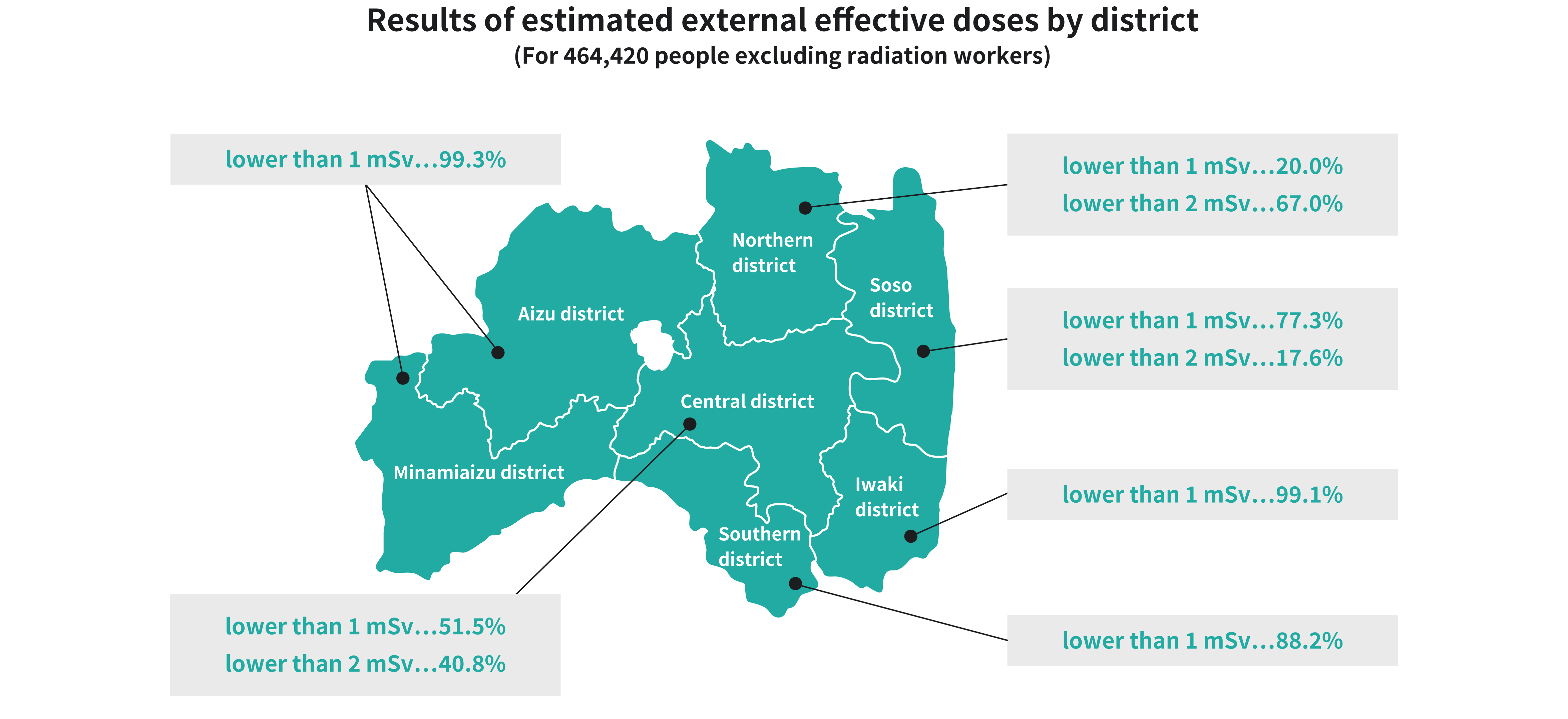FAQ
Safety and the Situation in Fukushima
The risk of dying from cancer is known to increase when short-term exposure exceeds 100–200 mSv.
Following the accident at the power station, a survey was carried out targeting 2.06 million people in Fukushima Prefecture. The objective was to estimate external doses over a period of four months. Results of the survey estimated the doses for 93.8% of respondents (466,000 people; excluding radiation workers) to be less than 2 mSv.
In a report compiled by the United Nations Scientific Committee on the Effects of Atomic Radiation (UNSCEAR), the committee concluded that there would not be a discernible increase in the incidence of radiation-induced leukemia or breast cancer (two of the most radiogenic cancers), nor in other types of solid cancers (with a possible exception of thyroid cancer). Regarding thyroid cancer, the committee summarized that, “The occurrence of a large number of radiation-induced thyroid cancers as were observed after the Chernobyl accident can be discounted because doses were substantially lower.“
It is thus deemed unlikely that there will be an increase in the incidence of radiation-induced cancer.
Reference Ministry of the Environment Government of Japan: BOOKLET to Provide Basic Information Regarding Health Effects of Radiation Fukushima Minpo&Nagasaki University: Radiation Q&A UNSCEAR: Fukushima 2017 White Paper Fukushima Prefecture Fukushima Reconstruction Station “Health of residents of the prefecture“
